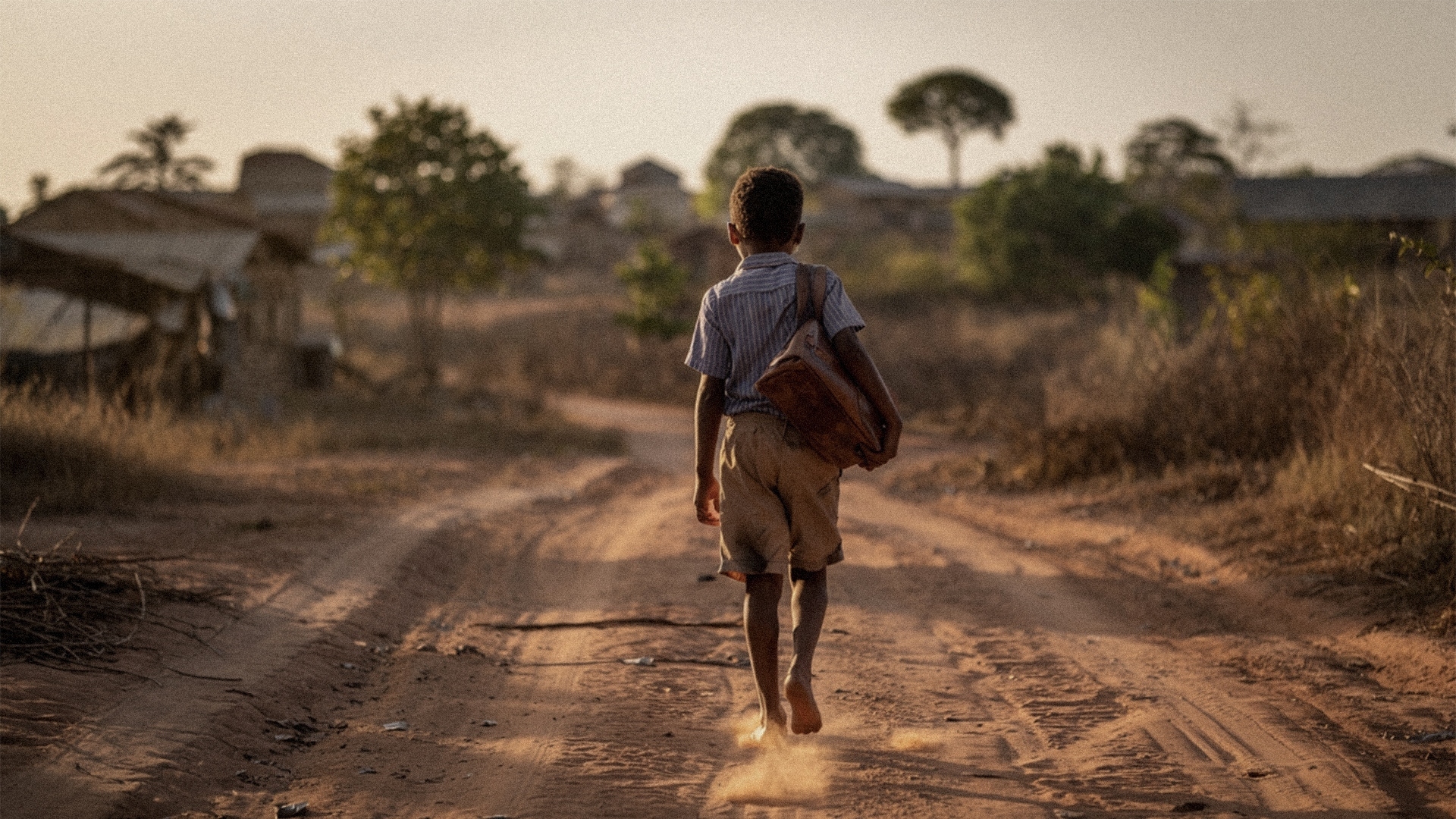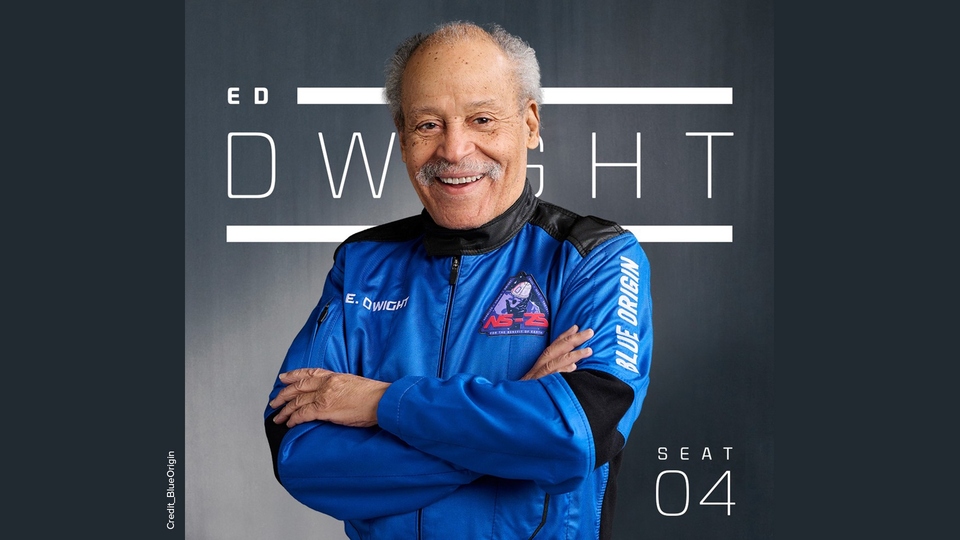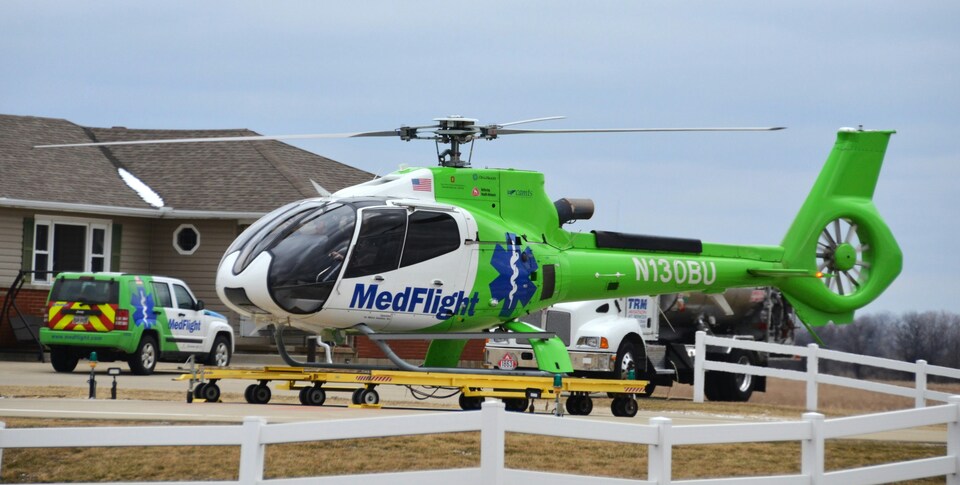
The Long Walk.
In rural Sierra Leone, where distance often stands between children and their dreams, Mustapha's journey from shoeless schoolboy to education pioneer began with a two-mile walk to school. Decades later, he's still moving forward.
June 17, 2025 by The Foundation For a Better Life
As a young boy, Mustapha’s father gave him a choice: The little money they had could go to a pair of shoes or to school fees. Mustapha chose school, and every day he walked two miles to class, barefoot. In the early 2000s, Sierra Leone was struggling to recover from a devastating civil war that had ended in 2002. The aftermath left the economy in shambles, with rural villages like Mustapha's lacking basic infrastructure. Despite widespread poverty, Mustapha saw education as his path to creating change in his community.
Public school was spotty. It was challenging to keep teachers in the rural areas with few resources. Mustapha wanted to learn how to make a difference, but his formal education was short-lived. No other local option existed beyond the few years of a basic education.
Then Mustapha found an online education program that offered certificates in the trades. He had to travel to a location where he could get internet and tutoring. He earned his associate’s degree, then his undergraduate diploma in engineering. And he kept walking.
Mentors helped him find his way into a master’s program online, and he earned an advanced degree in project management. He moved to the United States to learn more and get job experience. As soon as he felt ready, he returned to the village and got to work. The goal was always to rebuild his village. The first steps: making water available and bringing more education opportunities to people in the village, where they are.
“Without knowledge, we could not improve,” Mustapha says. He is steadying a brace that bridges a well under construction. A muddy rope snakes down into a deep hole. Mustapha pulls hard on the rope and retrieves a bucket of slurry. It is a good sign. The well is almost deep enough.
“Education has to be relevant,” Mustapha says, his forearms covered in drying mud. “Some regions need agrarian knowledge, others mining, still others animal science.”
Creeping up on the new well are rows of maize sprouts. They will need water from the well. They will need people to tend them who know how to plant, thin, fertilize, harvest, dry, mill, package, and market the product. Students learn mathematics so they can manage inventory and prices. Still others learn how to better communicate so they can negotiate with hiring institutions to get fair contracts for the work they do.
“'We focus on dynamic education based on regional needs,” Mustapha says. To turn this vision into reality, Mustapha has embraced innovative solutions. To fulfill his dream of expanding access to education, students download lessons on cheap phones when access to the internet is available, sometimes for only 10 minutes a day. Mentors help guide students through the lessons, and many former students become mentors.
“I had a small spark of desire,” Mustapha says. “It became first a light, then the warmth, then the power to transform lives.” He has helped build over 400 wells and educate thousands of students, who in turn, are mentoring others. The impact has been so profound in Sierra Leone that the locals call his success “The Mustapha Miracle.” But to Mustapha, it’s no real miracle. It’s about putting one foot in front of the other and never giving up.
Education....PassItOn
YOUR COMMENT
Wow! Absolutely incredible! The story brought tears to my eyes! He is a modern day saint, for sure!
Debra from NY, June 18, 2025
Thank you for sharing this beautiful, hopeful story about a very wise man following his vision. May we be inspired to keep walking toward a more empowered world.
Anne from Louisville, KY, June 18, 2025
Definitely need more people to step as this young man did. So proud of him!!!
W from AZ, June 17, 2025
Awesome story, thanks for sharing!
Anonymous, June 17, 2025



.jpg)